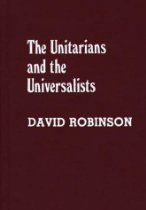A friend recently sent me the New York Times obituary for Carol Serling, the wife of one of my heroes, Rod Serling. Perhaps it’s a personal weakness, but I often wonder about the religion of my favorite writers. More often than not I discover that they’re affiliated with tolerant faiths, sometimes unattached to any specific tradition. Rod Serling grew up Jewish but became a Unitarian-Universalist by marriage, and—it doesn’t stretch the imagination—remained one by conviction. I’ve read a bit about the UU tradition, and it is based primarily on values rather than beliefs. In fact, the idea that religion is a matter of what you believe is only one way of defining it. Historically one’s religion was a matter of what one did, not necessarily what she or he believed.
Authors that I read often deal with religious issues. It’s important to confess that I don’t select fiction based on its having religious themes. Anyone who’s read more than one or two of my posts will know my reading is eclectic and many of the books represented here have shown up because of wildly different circumstances. Reading challenges, friends’ recommendations, and preparations for educational presentations are often driving forces. In the fictional realm I’m drawn to the speculative, but also often to the catch-all category called “literary.” Stories that feel authentic in either category have an element of religion in them. Life portrayed without it doesn’t seem believable. I’ve been re-reading some Ray Bradbury. There’s often suggestive material there.
Raised a Baptist, Bradbury is often also claimed as a Unitarian-Universalist. Apparently he didn’t like the label, but his behavior was more a selection of tenets that he found compelling from various religions. All of this may sound strange in a context where “religion” is increasingly a dirty word. (To be honest, it has been doing much to earn such a reputation.) Still, it is a very deep part of being human. Rod Serling’s stories advocated fair treatment of all people and often his sense of justice landed him in trouble with advertisers for The Twilight Zone. Religions comfortable with maintaining prejudice, or turning a blind eye to lawbreaking in the name of false virtue would certainly not understand refusing to take money from questionable sources. I suppose there’s a reason I enjoy the stories from the days when America still had a conscience. The legacies of such writers, it is to be hoped, will outlast what passes for religion these days.




